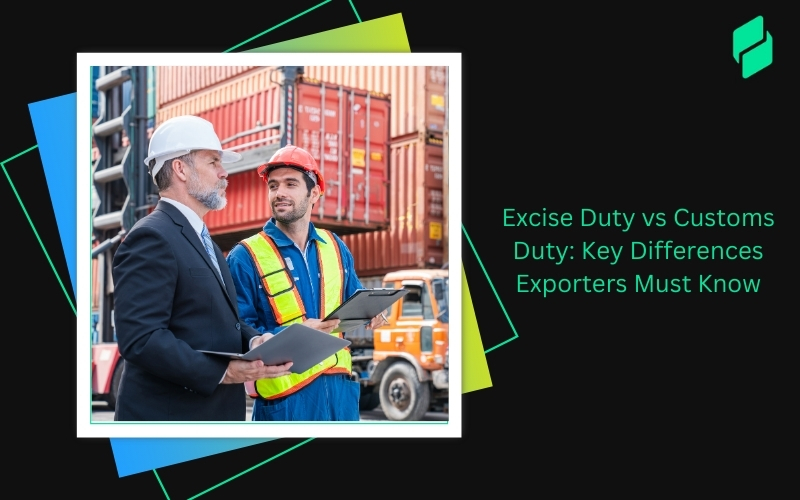Optimize your business: use unlimited savings with Pazago fulfilled now!
Get Started ->In marine trade, the unpredictable nature of import and export activities demands flexibility in insurance coverage. This is where the floating policy in marine insurance comes into play.
It safeguards traders involved in multiple shipments, allowing them to insure numerous consignments under one umbrella policy without specifying each shipment's details upfront. This feature makes it an ideal choice for businesses seeking efficient, cost-effective coverage.
What is a Floating (Open) Policy

An open (floating) policy covers multiple shipments under one comprehensive contract, providing a broad coverage scope for both inland marine and ocean marine insurance.
It’s like an adaptable safety net that protects all consignments transported over a specific period. It ensures that no matter how many shipments occur, they're covered under this singular marine insurance policy. This approach makes the floating policy one of the most flexible options available in marine cargo insurance.
Floating Policy by Ship or Ships as per Marine Insurance Act, 1963
According to the Marine Insurance Act 1963, a floating policy insures shipments in general terms, allowing details like ship names to be specified later via declarations:
- Subsequent Declarations: These are made by endorsements on the policy or customary methods.
- Order of Declarations: Declarations must be made as shipments occur and include all consignments under the policy.
- Honest Declaration: Goods' value must be stated accurately, with errors fixable if made in good faith.
- Unvalued Policy: If no declaration of value is made before loss or arrival, the policy is treated as unvalued.
Why Traders Prefer Open (Floating) Policies
Traders engaged in frequent import-export activities prefer open (floating) policies because they:
- Save Time: No need to obtain separate insurance for every shipment.
- Cost-Effective: Offers better rates than individual policies for each consignment.
- Simplifies Administration: Automatically covers every shipment, easing the burden of paperwork.
- Adaptability: Easily adjusted to fit varying cargo sizes, destinations, and values.
Also Read: Understanding Import Export Insurance and Its Benefits
How Open (Floating) Policies Work in Marine Insurance
Open (floating) policies offer flexibility and automatic coverage for regular shippers, adapting to each consignment's value and details. Here's a breakdown of how they work effectively for importers and exporters.
1. Automatic Insurance Coverage for Frequent Exporters/Importers
Imagine if every shipment you made was automatically insured without the need for constant paperwork. That’s exactly how a floating policy in marine insurance works.
It provides instant coverage for all your consignments, saving you the hassle of insuring each one separately. This is especially valuable for those engaged in frequent import and export activities, offering both convenience and peace of mind.
2. Required Declarations of Each Shipment
Although the policy covers all your goods, you must declare each shipment. This means providing specific details such as:
- Name of the vessel carrying the goods
- Type of cargo being shipped
- Value and destination of the shipment
These declarations ensure that your marine cargo insurance remains up-to-date and your goods are fully protected. It’s a practical step that keeps your insurance aligned with every shipment, allowing smooth logistics and seamless handling.
3. Adjusting Premiums Based on Declarations
One of the standout features of a floating policy is its adaptability. Unlike fixed insurance plans, your premium adjusts based on the actual value of your shipments.
This means you only pay for the coverage you need, making it a cost-effective choice for supply chain management.
For example, if you ship high-value electronics one month and the next month you ship textiles, your premium will adjust accordingly, ensuring you’re never overpaying or underinsured.
4. Error Correction Mechanism for Declarations
Mistakes happen, and the marine insurance policy acknowledges this. If you make an error in your shipment declaration, there’s an option to correct it even after a loss occurs as long as it’s done in good faith.
This flexibility adds a safety net, ensuring you don’t miss out on your claim due to minor inaccuracies, reinforcing trust and transparency in the marine insurance clauses.
5. Possibilities of Premium Refunds on Unadjusted Sums
Did you declare a higher cargo value than necessary? Don’t worry; you may be eligible for a premium refund on any unadjusted sums.
This means that if your total shipment value is less than what you initially declared, you could be eligible for a refund.
It’s another way that a floating policy helps traders manage costs efficiently, ensuring you’re not paying more than you should for your shipping insurance.
Also Read: Insurance Claim Letter for Requesting Reimbursement Process
What Are the Advantages of Open (Floating) Policies in Marine Insurance?
An open (floating) policy offers numerous benefits, especially for businesses that handle regular shipments. This section highlights why it’s considered a smart choice for import-export activities.
1. Convenience for Regular Dispatches
Frequent exporters or importers benefit immensely from the convenience of a floating marine insurance policy. Instead of obtaining separate policies for every shipment, this policy automatically covers all dispatches, saving valuable time and effort.
2. Flexibility in Managing Multiple Shipments
An open policy is flexible, adapting to your shipping needs as they change. Whether you’re shipping a small consignment today or a large one tomorrow, the policy adjusts to cover it without any additional paperwork.
3. Cost Efficiency Due to Bulk Coverage
By bundling all shipments under one marine insurance policy, traders often enjoy more competitive premiums. This bulk coverage makes it a cost-effective solution, especially when compared to insuring each shipment individually.
4. Reduction in Administrative Burden
Imagine not having to fill out endless forms for each consignment. With an open (floating) policy, administrative tasks are significantly reduced, allowing businesses to focus more on supply chain management and less on insurance documentation.
Open (floating) policies simplify the insurance process, offering traders a streamlined, efficient approach to shipping insurance that supports hassle-free logistics.
Also Read: Definition and Meaning of Cargo Insurance Certificate in Shipping Terms
Managing Shipments Under an Open (Floating) Policy in Marine Insurance

Managing multiple shipments under a floating policy in marine insurance might seem complex, but it’s quite straightforward once you understand the process. This section breaks down the key aspects, making it easier for frequent importers and exporters.
1. Process of Shipment Declaration
The first step is declaring each shipment covered by the policy. This involves providing details like the vessel’s name, cargo description, and value for each consignment. This process ensures that your marine cargo insurance accurately reflects your shipping activities.
- Tip: Maintain a digital log of all declarations to stay organised and avoid errors.
2. Tracking the Insured Sum Balance
An essential part of managing an open policy is tracking your insured sum balance. As each shipment is declared, the total insured sum is adjusted. Monitoring this balance ensures that your coverage remains sufficient, preventing any lapses.
- Quick Insight: Regularly updating your records helps avoid discrepancies in your marine insurance policy.
3. Adjusting Coverage for New Consignments
Every new consignment requires a coverage adjustment. This means updating the policy to reflect the value and nature of the latest shipment. A floating policy's adaptability ensures you never worry about underinsurance or overpaying for coverage.
- Practical Tip: Use automated tools or spreadsheets to adjust coverage efficiently for your shipping insurance needs.
4. End of Policy Period Reconciliation
At the end of your policy period, it’s crucial to reconcile all declarations made. This step ensures that every consignment has been accounted for and any discrepancies are addressed. It’s a way to cleanly wrap up your marine insurance contract and prepare for renewal.
- Pro Tip: Conduct an annual review with your insurer to streamline future import and export operations.
Also Read: Claim Process and Required Documents in Marine Insurance
Open (Floating) Policy vs Open Cover Policy
Choosing the right marine insurance can be confusing, especially when deciding between an Open Cover Policy and an Open (Floating) Policy. Let’s break down the key differences to help you make the best choice for your business.
Here's a detailed comparative table between Open (Floating) Policies and Open Cover Policies, including additional aspects:
This table thoroughly compares why a floating policy in marine insurance offers greater flexibility and efficiency, making it ideal for businesses with continuous logistics and supply chain management needs.
Also Read: Understanding the Inland Transit Clause in Marine Insurance
Common Pitfalls and How to Avoid Them in Open (Floating) Policies
An open (floating) policy is a flexible tool for marine insurance, but it's easy to make costly mistakes if you’re not careful. Let's dive into some common pitfalls and how to avoid them to ensure smooth coverage.
1. Common Errors in Shipment Declarations
Many traders unintentionally provide incorrect details, such as wrong cargo values or vessel names, which can jeopardise their marine cargo insurance claims. These mistakes often arise from rushed or incomplete documentation.
- Example: Imagine declaring an incorrect cargo value and facing a payout far below your loss.
2. Strategies to Ensure Accurate Declarations
- Thorough Documentation: Always double-check shipment details before submission.
- Leverage Technology: Use digital tools for accurate declarations, minimising manual errors.
Pro tip: Implement a verification step in your shipping insurance process to catch mistakes early.
3. Steps to Take When Discrepancies Occur
- Immediate Action: If discrepancies arise, contact your insurer promptly with corrected information.
- Provide Evidence: Include shipment inspection reports or photos to support your correction.
Staying proactive ensures that any missteps don't compromise your marine insurance policy.
4. Understanding Policy Terms for Refunds
Know your policy's refund terms. If you’ve overestimated your cargo’s value, you might be entitled to a refund on unadjusted premiums, but only if you act within the allowed time frame.
Addressing these common pitfalls ensures that your floating marine insurance policy offers the maximum protection your business deserves.
Also Read: Understanding the Basis of Valuation in Marine Cargo Insurance
Conclusion: Simplify Global Trade and Marine Insurance with Pazago
Pazago is an all-in-one EXIM management platform, making marine insurance easy and efficient for your business.
Operating across 110+ countries, Pazago ensures up to 20% cost savings and a 50% reduction in turnaround time (TAT).

Key Features:
- Digital Trade Management: Manage the full trade process from procurement to fulfillment.
- Real-Time Cargo Tracking: Track shipments across 180+ shipping companies.
- Seamless Payment Processing: Enjoy fast international payments with low Forex rates.
- Document Management: Create and manage essential trade documents securely.
- Proactive Planning: Get notifications to avoid delays and bottlenecks.
Comprehensive Cargo Insurance
Pazago, in partnership with ICICI Lombard, offers:

- Digital Insurance: Completely paperless and online.
- Full Coverage: Broad protection, unlike basic carrier liability.
- Quick Claims: Hassle-free claims process with no need to prove carrier fault.
Choose Pazago to simplify global trade and manage your floating policy in marine insurance with unparalleled efficiency!


.png)








